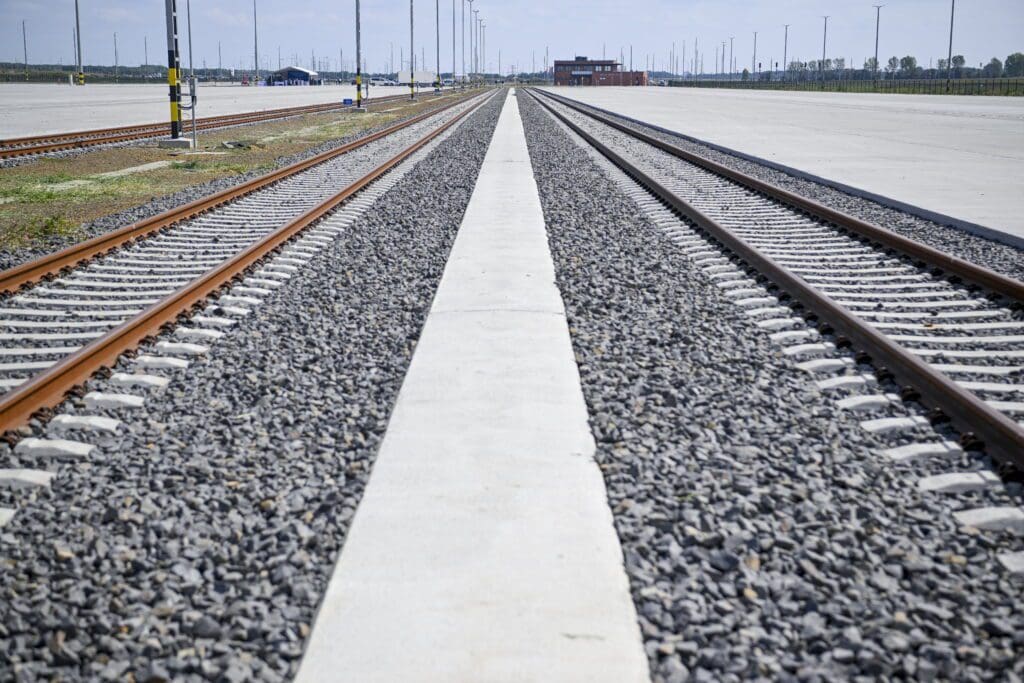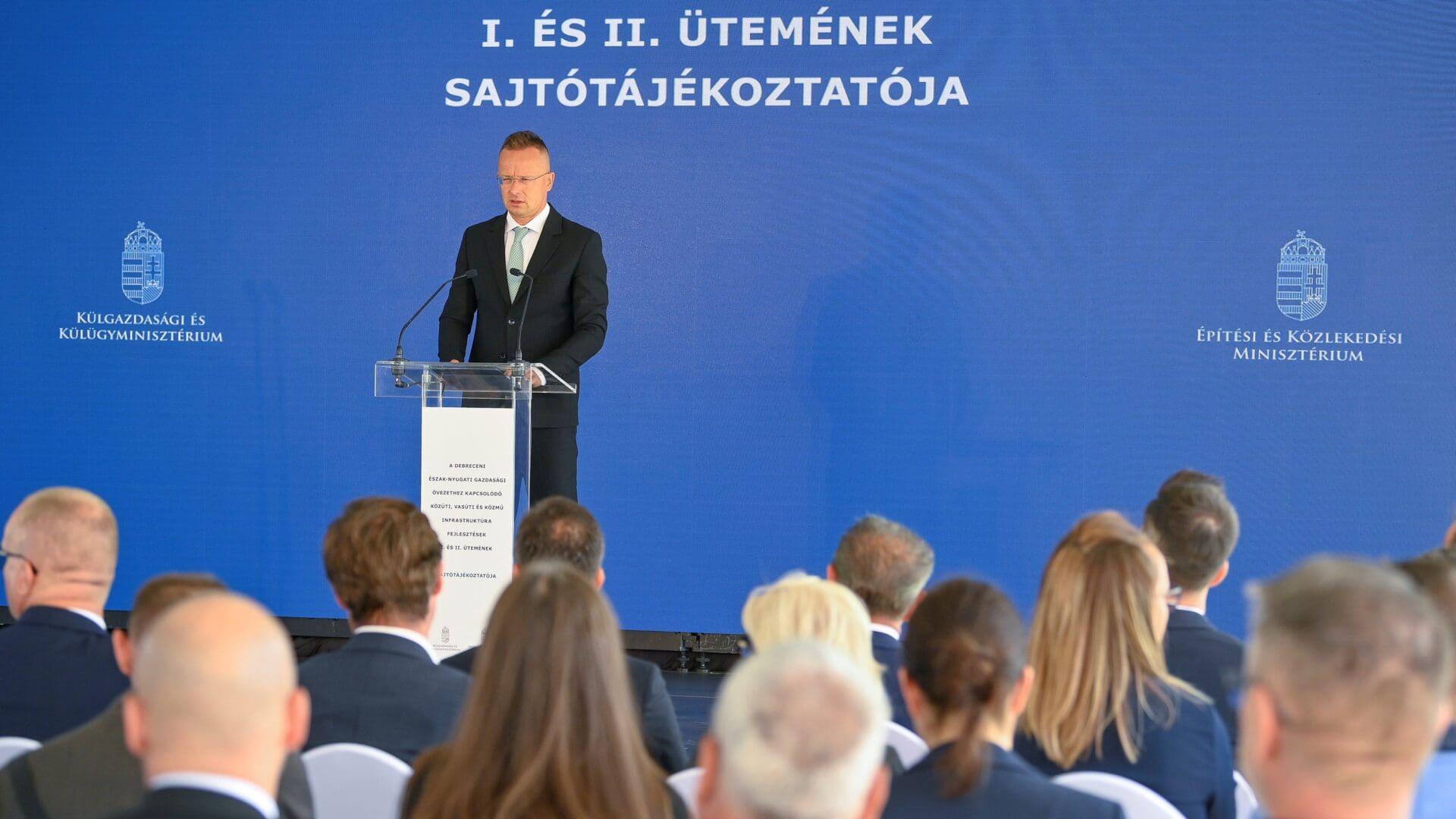The first phase of railway infrastructure developments related to the North-West Economic Zone in Debrecen has been completed, allowing the start of the project’s second phase, which will lead to the establishment of one of Eastern Europe’s largest industrial intermodal terminals, Minister of Foreign Affairs and Trade Péter Szijjártó announced on Wednesday at the site.
During the press conference held on the occasion of the inauguration, the minister reported that Hungary has undoubtedly become a leader in the continuously advancing automotive industry transformation, and the city of Debrecen has turned into an important global centre for the sector. Currently, there are investments worth around one trillion Hungarian forints being implemented in the region, as BMW is placing the focus of its future electromobility strategy here, while also building Europe’s largest electric battery factory.
‘The three largest investments in Hungarian economic history are currently taking place just a few kilometres from each other here,’ he emphasised. He pointed out that these factory constructions induce significant transportation infrastructure developments, including substantial road and railway constructions. He emphasised that the government has also decided on significant railway developments in the vicinity of Debrecen. Over two stages, 130 billion forints will renew the Füzesabony and Balmazújváros lines, modernising existing stations, building new ones, and electrifying the tracks.

‘As a result, a direct connection will be established between the Debrecen North–West Economic Zone and the main railway transportation lines,’ he stressed. Szijjártó announced that the first phase, valued at 65 billion forints, has been completed, enabling the start of the second phase. ‘As a result, the largest intermodal industrial terminal in Eastern Hungary and one of the most significant ones in Eastern Europe will be established in Debrecen,’ he stated. He highlighted that this logistics centre will enable the comprehensive servicing of the BMW factory via both rail and highway transport.
‘The government continuously fulfils its commitments towards BMW, and in addition, we are carrying out developments that simultaneously improve the living conditions of the people here,’ he stated. ‘We’re not just improving freight traffic, not only enabling BMW to transport 70 per cent of its produced cars by rail, but we’re also making transportation between Debrecen and the nearby settlements faster and more attractive. At the same time, we are also protecting our environment, as the railway line will now have overhead electric wires, allowing diesel operations to be replaced by electric locomotives,’ he added. ‘The country benefits greatly from the investments in Debrecen, but we also want the lives of the people of Debrecen to visibly improve due to these investments. Therefore, we will continue with further road developments, modernise the city’s water network, and carry out additional community investments,’ he continued.
The minister stated that in the challenging European economic environment, there is a fiercer battle than ever for investments, as investments guarantee growth. ‘It’s not an exaggeration to say that in the extremely competitive global race for investments, Hungary ranks among the most successful countries,’ he noted.
He reminded that since 2014, except for the slowdown due to the coronavirus pandemic, the country managed to break investment records every year. While last year the record was broken with 6.5 billion euros, this year this sum is set to double, helping to sustain the growth trajectory despite difficult circumstances and external pressures. He confirmed that the government will continue with infrastructure developments in the future to keep Hungary attractive for investors.
Related articles:
Sources: Hungarian Conservative/KKM/MTI








